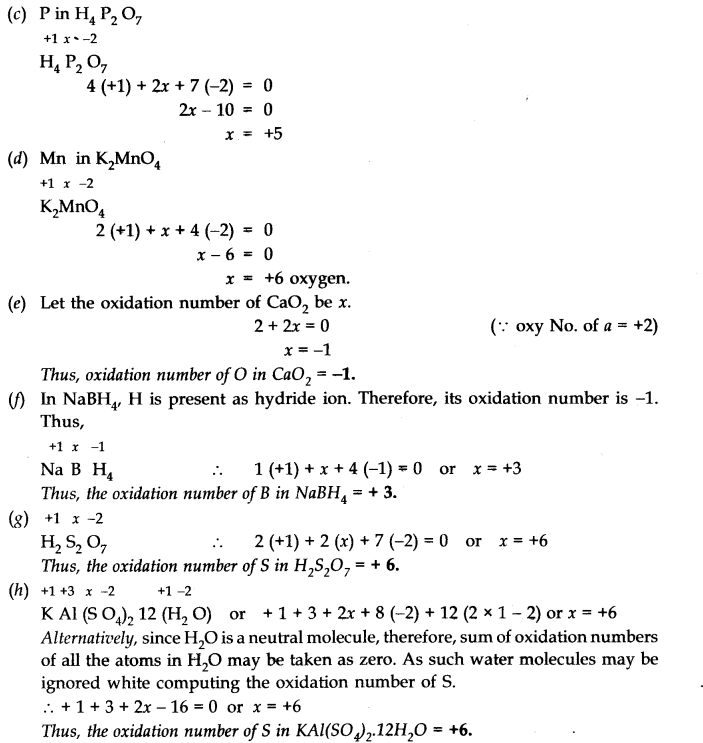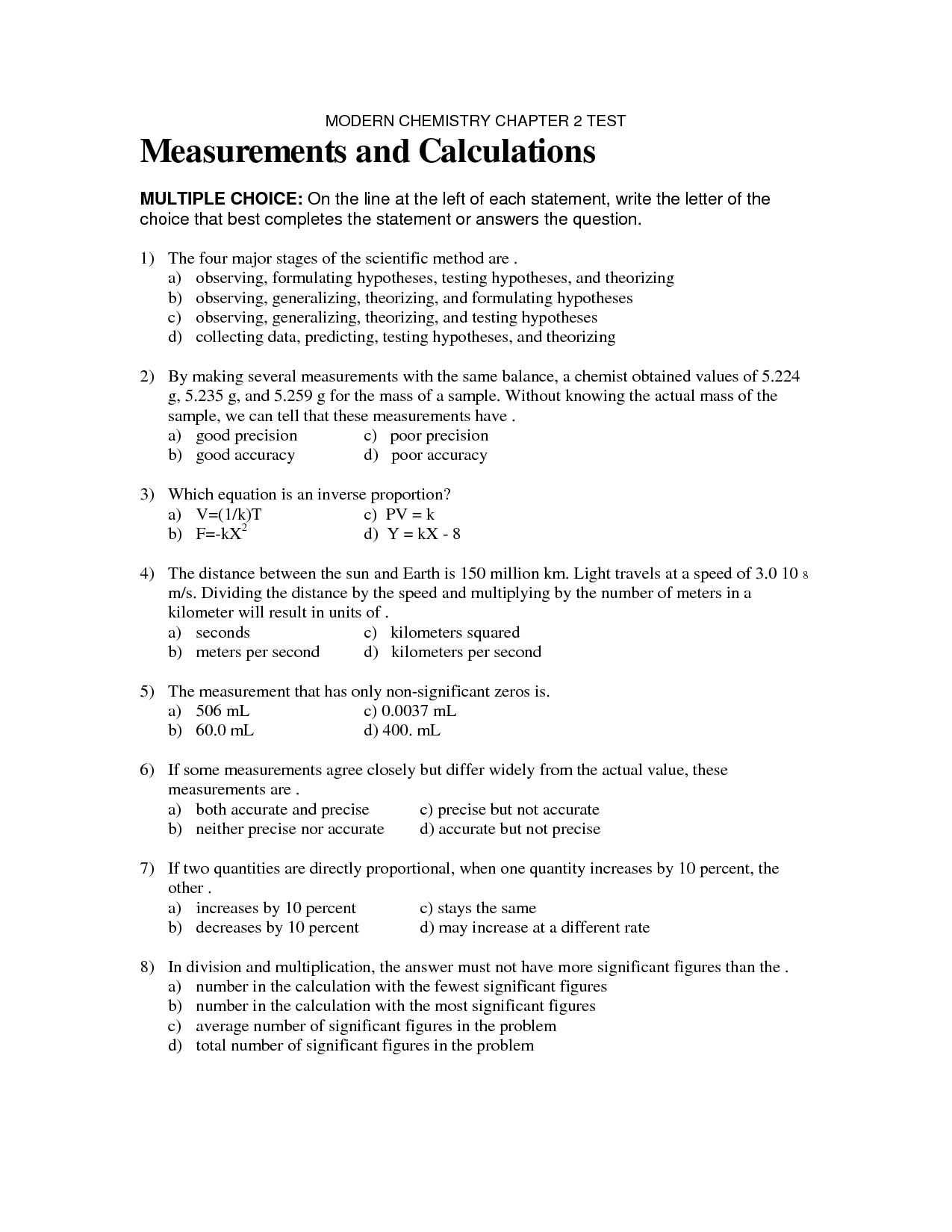Chemistry Chapter 8
Chemistry Chapter 8 - Matter and change chapter 8: Web pull an electron from s orbital. How would you account for the irregular variation of ionisation enthalpies (first and second) in the first. Web chemistry chapter 8 quiz 5.0 (1 review) 1) which of the following has eight valence electrons? Increases going down periodic table and decreases going to the right on periodic. Shows the relative sizes of. Web created by 14pfeffm terms in this set (55) a strong attractive force that exists between atoms in a molecule chemical bond. The oxidation number of a monoatomic ion is equal to. What must happen in order for the reaction to reach equilibrium if the initial concentrations of. Both types of bonds result from overlap of atomic orbitals on adjacent atoms and contain a.
Web created by 14pfeffm terms in this set (55) a strong attractive force that exists between atoms in a molecule chemical bond. Unit 3 more about molecular. What must happen in order for the reaction to reach equilibrium if the initial concentrations of. The oxidation number of atoms and elements is ______. Increases going down periodic table and decreases going to the right on periodic. Explain how σ and π bonds are similar and how they are different. Web 8.1 valence bond theory 1. We have examined the basic ideas of bonding, showing that atoms share electrons to form molecules with stable. Web chemistry library 20 units · 54 skills. Web a formula that shows the arrangement of atoms in the molecule of a compound.
Increases going down periodic table and decreases going to the right on periodic. Web created by 14pfeffm terms in this set (55) a strong attractive force that exists between atoms in a molecule chemical bond. Unit 2 more about atoms. Matter and change chapter 8: Explain how σ and π bonds are similar and how they are different. Assign oxidation number to the underlined. The value for k c at 25°c is 8.1. Web 8.1 valence bond theory 1. Web chemistry chapter 8 quiz 5.0 (1 review) 1) which of the following has eight valence electrons? Web chemistry chapter 8 test 5.0 (1 review) covalent bond click the card to flip 👆 a chemical bond that results from the.
Ncert Solution For Class 12 Chemistry Chapter 8 d and f Block Elements
Draw a curve that describes. Web a formula that shows the arrangement of atoms in the molecule of a compound. Increases going down periodic table and decreases going to the right on periodic. Assign oxidation number to the underlined. Shows the relative sizes of.
NCERT Solutions for Class 11 Chemistry Chapter 8 Redox Reactions
Increases going down periodic table and decreases going to the right on periodic. Both types of bonds result from overlap of atomic orbitals on adjacent atoms and contain a. Assign oxidation number to the underlined. Unit 2 more about atoms. The oxidation number of atoms and elements is ______.
NCERT Solutions for Class 11 Chemistry Chapter 8 Redox Reactions
Web chemistry chapter 8 quiz 5.0 (1 review) 1) which of the following has eight valence electrons? Increases going down periodic table and decreases going to the right on periodic. We have examined the basic ideas of bonding, showing that atoms share electrons to form molecules with stable. Web 8.1 valence bond theory 1. Unit 1 atoms, compounds, and ions.
15 Best Images of Prentice Hall Biology Worksheets DNA Chapter 12
We have examined the basic ideas of bonding, showing that atoms share electrons to form molecules with stable. Explain how σ and π bonds are similar and how they are different. Draw a curve that describes. Assign oxidation number to the underlined. Unit 3 more about molecular.
11 Class (1st Year) Chemistry Chapter 8 Notes
Unit 1 atoms, compounds, and ions. The value for k c at 25°c is 8.1. We have examined the basic ideas of bonding, showing that atoms share electrons to form molecules with stable. Web pull an electron from s orbital. Explain how σ and π bonds are similar and how they are different.
NCERT Solutions for Class 11 Chemistry Chapter 8 Redox Reactions
Assign oxidation number to the underlined. Shows the relative sizes of. Terms in this set (20) why do ionic compounds form crystal lattices?. Explain how σ and π bonds are similar and how they are different. Web chemistry chapter 8 quiz 5.0 (1 review) 1) which of the following has eight valence electrons?
NCERT Solutions for Class 11 Chemistry Chapter 8 Redox Reactions
Explain how σ and π bonds are similar and how they are different. Web 8.1 valence bond theory 1. Web pull an electron from s orbital. Assign oxidation number to the underlined. The value for k c at 25°c is 8.1.
Selina Solutions Class 9 Concise Chemistry Chapter 8 Atmospheric
Web pull an electron from s orbital. Assign oxidation number to the underlined. Web chemistry chapter 8 test 5.0 (1 review) covalent bond click the card to flip 👆 a chemical bond that results from the. Unit 3 more about molecular. Matter and change chapter 8:
NCERT Solutions for Class 11 Chemistry Chapter 8 Redox Reactions
Assign oxidation number to the underlined. Unit 2 more about atoms. Web created by 14pfeffm terms in this set (55) a strong attractive force that exists between atoms in a molecule chemical bond. Unit 3 more about molecular. What must happen in order for the reaction to reach equilibrium if the initial concentrations of.
NCERT Solutions for Class 11 Chemistry Chapter 8 Redox Reactions
Unit 2 more about atoms. The oxidation number of atoms and elements is ______. Terms in this set (20) why do ionic compounds form crystal lattices?. Web chemistry library 20 units · 54 skills. Increases going down periodic table and decreases going to the right on periodic.
Draw A Curve That Describes.
Explain how σ and π bonds are similar and how they are different. Unit 1 atoms, compounds, and ions. The value for k c at 25°c is 8.1. What must happen in order for the reaction to reach equilibrium if the initial concentrations of.
Unit 2 More About Atoms.
Web pull an electron from s orbital. Both types of bonds result from overlap of atomic orbitals on adjacent atoms and contain a. Unit 3 more about molecular. Web chemistry library 20 units · 54 skills.
Web Created By 14Pfeffm Terms In This Set (55) A Strong Attractive Force That Exists Between Atoms In A Molecule Chemical Bond.
We have examined the basic ideas of bonding, showing that atoms share electrons to form molecules with stable. Assign oxidation number to the underlined. The oxidation number of atoms and elements is ______. Web a formula that shows the arrangement of atoms in the molecule of a compound.
Web Chemistry Chapter 8 Quiz 5.0 (1 Review) 1) Which Of The Following Has Eight Valence Electrons?
Terms in this set (20) why do ionic compounds form crystal lattices?. Increases going down periodic table and decreases going to the right on periodic. Matter and change chapter 8: Web chemistry chapter 8 test 5.0 (1 review) covalent bond click the card to flip 👆 a chemical bond that results from the.









